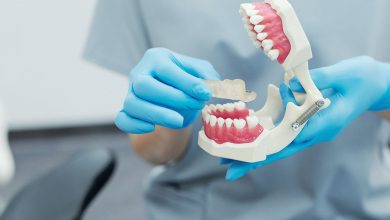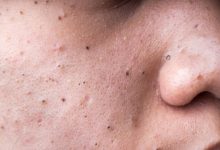Choosing the Dental Chews for Your Dog’s Oral Health
Dental Chews

As responsible pet owners, ensuring the well-being of our furry companions involves more than just regular walks and cuddles. Dental health is a crucial aspect of overall pet care, often overlooked by many. A healthy mouth is essential for your dog’s overall well-being, and one effective way to promote oral hygiene is by incorporating dental chews into their routine. In this blog, we will explore the significance of oral health for dogs, understand the benefits, and guide you through choosing the best dental chews to keep your canine friend’s teeth and gums in top condition.
The Importance of Canine Oral Health:
Maintaining proper oral hygiene for your dog is not just about preventing bad breath; it’s a key element in their overall health. Poor oral health can lead to various issues, including:
- Gum Disease:
One of the most common oral problems in dogs is gum disease. Plaque and tartar build-up on the teeth can lead to gingivitis, inflammation of the gums, and eventually progress to more severe stages of periodontal disease.
- Tooth Decay:
Dogs can experience tooth decay, which can be painful and may result in tooth loss. Decayed teeth can also lead to infections that can spread to other parts of the body.
- Bad Breath:
While it may seem like a minor issue, persistent bad breath can be a sign of underlying dental problems. Addressing the root cause of bad breath is crucial for your dog’s comfort and overall health.
- Systemic Health Issues:
Poor oral health is not confined to the mouth; it can have implications for the entire body. Bacteria from the mouth can enter the bloodstream, potentially affecting the heart, liver, and kidneys.
Benefits of Dental Chews for Dogs:
Dental chews serve as a proactive and enjoyable way to promote your dog’s oral health. Here are some key benefits of incorporating dental chews into your dog’s routine:
- Plaque and Tartar Control:
These are designed to help control the build-up of plaque and tartar on your dog’s teeth. The mechanical action of chewing helps remove debris and bacteria, preventing the formation of dental problems.
- Fresh Breath:
Many dental chews are formulated with ingredients that combat bad breath, leaving your dog with a fresher and more pleasant breath. This can make those close moments with your pet much more enjoyable.
- Gum Stimulation:
Chewing on dental treats promotes healthy gum stimulation, which is essential for maintaining strong and resilient gums. This can reduce the risk of gum disease and other oral issues.
- Entertainment and Mental Stimulation:
Beyond the dental benefits, chewing is a natural behavior for dogs that provides mental stimulation and can help alleviate boredom and anxiety.
Choosing the Best Dental Chews:
Not all dental chews are created equal, and selecting the right one for your dog involves considering various factors.
1. Size and Texture:
- Appropriate Size: Choose dental chews that are appropriate for your dog’s size. Chews that are too small may pose a choking hazard, while those that are too large may be challenging for smaller dogs to handle.
- Texture: Opt for dental chews with a texture that promotes effective cleaning. Those with ridges or nubs can help remove plaque and tartar more efficiently.
2. Ingredients:
- Natural Ingredients: Look for dental chews made with natural ingredients and free from artificial additives, colors, and preservatives. Natural options are often gentler on your dog’s digestive system.
- Dental-Focused Ingredients: Some dental chews contain specific ingredients like chlorophyll, parsley, or enzymes that target bad breath and support oral health.
3. Ease of Digestion:
- Digestible Formulas: Choose that are easily digestible to avoid potential digestive issues. Treats that break down more readily can be safer for your dog, especially if they have a sensitive stomach.
4. Veterinarian Recommendations:
- Consult Your Veterinarian: Before introducing any new dental chew, consult with your veterinarian. They can provide insights into your dog’s specific oral health needs and recommend products that align with those needs.
5. Breed and Age Considerations:
- Breed-Specific Chews: Some dental chews are designed with specific breeds in mind. Consider your dog’s breed and age when selecting, as different breeds and life stages may have varying oral health requirements.
6. Frequency of Use:
- Guidelines for Use: Follow the recommended guidelines for the frequency of use provided by the manufacturer. Overuse of dental chews may lead to excessive calorie intake or other digestive issues.
Conclusion:
Maintaining your dog’s oral health is a crucial aspect of responsible pet ownership, and dental chews can be a valuable addition to your canine companion’s routine. By understanding the significance of oral health, recognizing the benefits of dental chews, and making informed choices based on your dog’s specific needs, you can contribute to their overall well-being. Remember to consult with your veterinarian to tailor your approach to your dog’s unique oral health requirements, ensuring a happy, healthy, and smiling canine friend for years to come.









